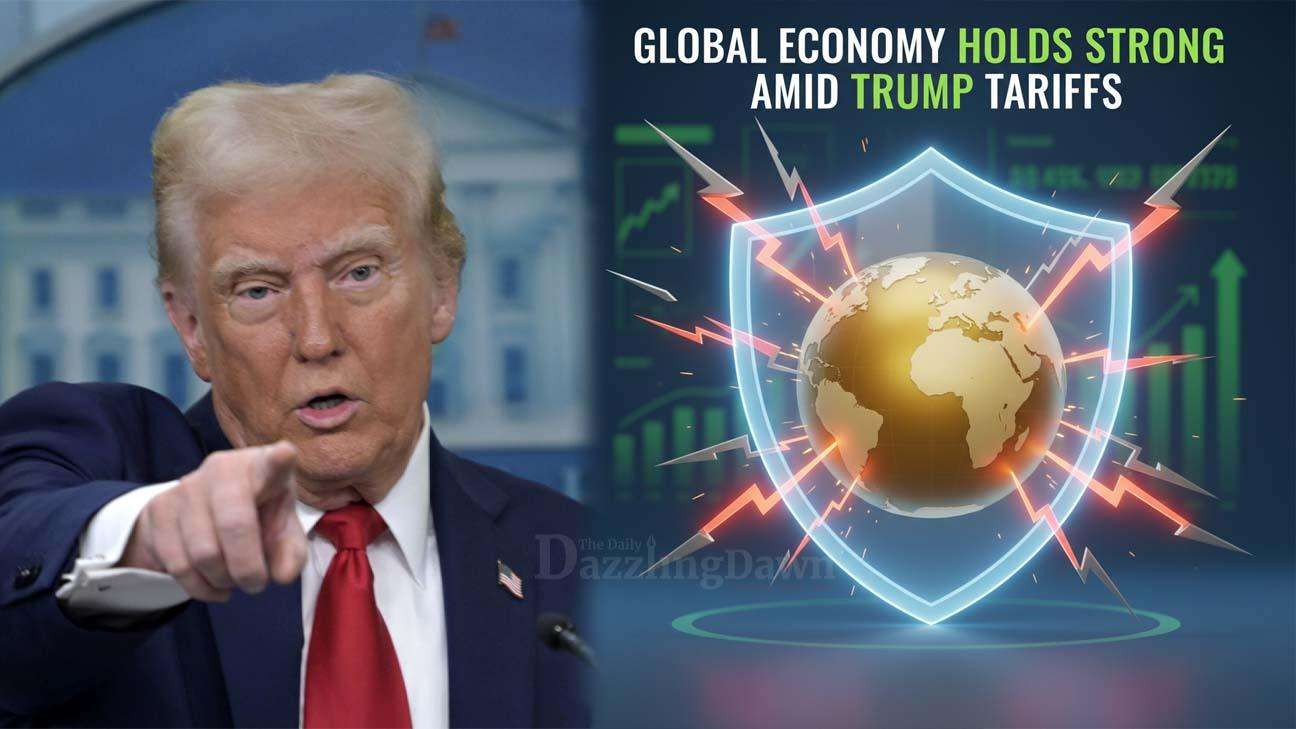ChatGPT said:
The global economy has held up better than many expected against Donald Trump’s tariffs but is set to lose momentum over the coming year, according to the Organisation for Economic Co-operation and Development (OECD).
The Paris-based group of advanced economies raised its 2025 global GDP growth forecast to 3.2%, compared with 2.9% in June. It credited stronger-than-expected activity in emerging markets and a surge in exports brought forward ahead of higher tariffs.
However, with job markets softening in several countries, including the US, and the effect of early export shipments fading, the OECD expects growth to ease back to 2.9% in 2026, in line with its previous projection.
For the UK, the OECD now sees growth of 1.4% this year, slightly up from June’s 1.3% estimate, but it kept its 2026 outlook unchanged at 1%. The organisation warned that Britain’s tighter fiscal policy – through higher taxes and reduced spending – will drag on economic performance. Chancellor Rachel Reeves, who is due to deliver her budget on 26 November, is widely expected to announce further tax rises.
If accurate, the forecasts would leave the UK in the middle of the G7 pack next year, behind the US (1.5%), Germany (1.1%) and Canada (1.2%), but ahead of Italy (0.6%), Japan (0.5%) and France (0.9%). For 2025, the UK is set to be the G7’s second-fastest-growing economy, trailing only the US. Labour had pledged before last year’s election to deliver the “highest sustained growth” in the G7, although without specifying the timeframe.
Trump’s tariff strategy has shifted repeatedly since his “Liberation Day” announcement in April, when he imposed broad reciprocal duties. The OECD estimates the average US import tariff reached 19.5% by the end of last month – the highest since 1933.
As a result, and with net immigration slowing due to Trump’s policies, the OECD expects US growth to fall from 2.8% in 2024 to 1.8% in 2025 and 1.5% in 2026. It noted that the full impact of higher tariffs has yet to be felt.
Most major economies have so far avoided retaliating, instead seeking concessions from Washington rather than risking a full trade war.
Rising tariffs, coupled with higher food costs, have stalled the decline in inflation that began after the post-Ukraine war spike, the OECD warned. It also flagged major risks ahead, including the possibility of further tariff hikes, renewed inflationary pressure, fiscal strains, and sharp corrections in financial markets.
Another concern, it said, was the instability of crypto-asset valuations, given their deep links with the broader financial system.








.svg)



_7.jpg)